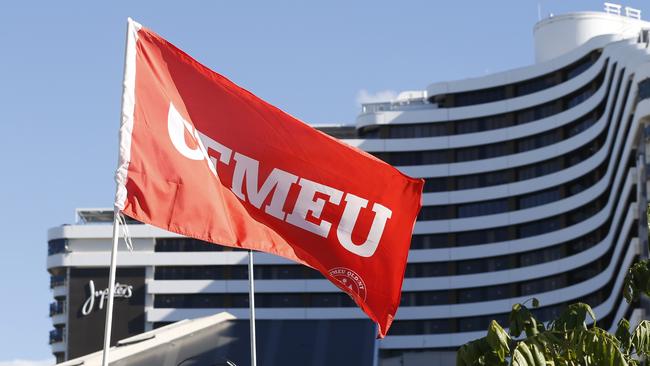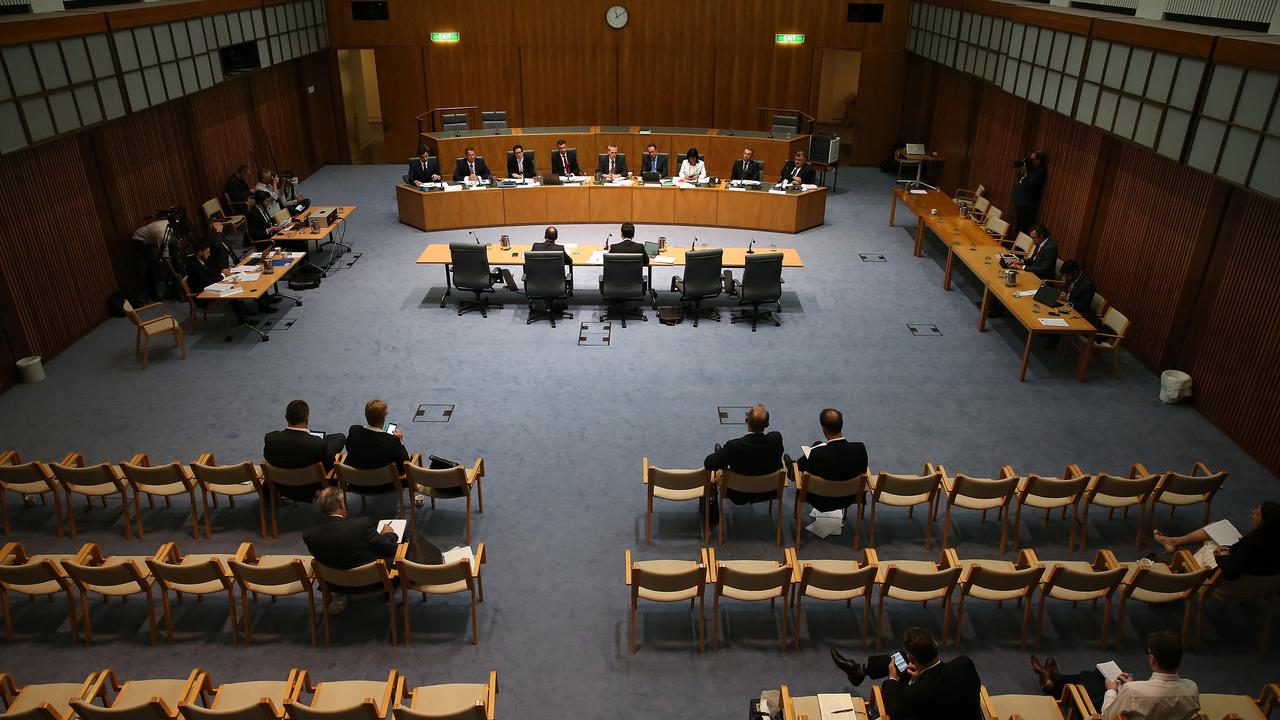
Prime Minister Malcolm Turnbull, quite logically, is severely criticising the ALP and, particularly the Greens, for taking huge sums from the CFMEU and then blocking the legislation proposed to curb some of the worst aspects of the union’s activities.
But the Coalition side of politics is just as guilty in the affair.
The community suffers from the guilt of all three major parties via the higher cost of hospitals and schools infrastructure and, of course, commercial building.
Our only weapon against the major parties and their deals is the crossbenchers in the Senate, albeit imperfect.
Let’s look at how it all works.
The CFMEU give its money to the Greens in exchange for an undertaking to oppose the Australian Building and Construction Commission legislation and other union legislation it doesn’t like. And the ALP, of course, never had any choice because unions are at the heart of its funding and culture base.
But in this issue Malcolm Turnbull and the Coalition also have dirty hands. It is all too easy to classify the unions as “the baddies” when the corporations which are supposed to be on the Coalition side and are therefore “the goodies” are just as deeply involved in benefiting from the deals as the unions.
Under our trade practices legislation, if two companies get together and collude on prices and markets it is called a cartel and it is illegal. Directors and managers have been jailed.
But there is a way around the legislation. Companies can meet with the unions to discuss the price of labour and in the process the unions decide who will be given contracts. If your enterprise is put on the “A” list by the unions then all other companies on the “A” list are allowed to deal with you and conversely if you are on the unions’ “B” list then you simply are excluded from most infrastructure and large building projects.
In the process both the price of labour and the profit margins are increased. It is necessary for those on the “A” list to pay money to the unions through various mechanisms. And some of that corporate money ends up in the pockets of the ALP and the Greens. The Heydon union royal commission documented all this very clearly so there are no secrets. Dyson Heydon had a simple solution --- that the government should stop the payment of corporate money to unions.
It is a perfectly reasonable recommendation but it was not in the interests of the Coalition’s mates who might lose their spot on the “A” list.
In fairness to the government, its ABCC legislation will hit the profits of its building industry mates and thankfully they were unable to water it down.
But in cash they were successful. So while the government issued a press release saying that it would ban payments by employers to unions, in the 35-page detailed statements there are loopholes galore covering “training”, where disclosure allows payments, limiting payment bans to workplace deals and more. Heydon was brilliantly nobbled.
Apart from looking after mates, why did the Liberals and National Party not follow the Heydon commission recommendation?
The most popular explanation in Coalition ranks is that it would take away the ability to bash the ALP about the unions. The Coalition defenders say the other explanation is that left wing public servants made the changes and the government didn’t pick them up. This story shows exactly why we are so disenchanted with both major parties and why the cross benchers in the Senate are important, albeit that we might not like many of their policies.
I hope that the price of passing the ABCC legislation is that it’s not just an attack on unions but also brings into line the Coalition’s mates.
The links between corporations, unions and political parties are not confined to building. In the retail area the unions and the corporations entered into an arrangement which saw those employees working at nights and weekends receive less than the award stipulations and those working during the day receiving more than the award stipulations. The quid pro quo was that most retail employees become part of the retail union, which made it rich and become one of the major supporters of the ALP.
What we really need is for the Australian Competition and Consumer Commission to have the power to classify union employer arrangements that involve payments and exclude rivals from tendering be treated as a trade practice issue.
The way the current legislation is framed makes it next to useless in protecting corporate collusion via unions. We will have a lot more hospitals, schools and roads for the same money. But corporate profits would be slashed as competition increases.






We are watching a classic demonstration of why the Australian community is becoming disenchanted with the major parties.